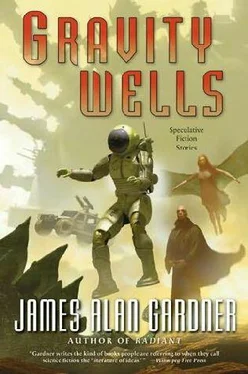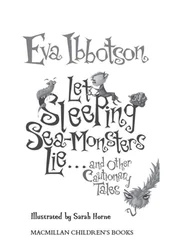"Let us be clear on this point," Septus said to Leeuwenhoek. "Do you deny the Doctrine of Original Sin?"
"No—I could never make heads or tails of theology. What I understand is blood; and there are no snakes in it."
One of the toadies ventured a small gasp of horror, but even a deaf man could have told the sound was forced.
Prosecutor ben Jacob, trying to be helpful, said, "You must appreciate the snakes would be very, very small."
"That's just it," Leeuwenhoek answered with sudden enthusiasm. "I have created a device which makes it possible to view tiny things as if they were much larger." He turned quickly toward Septus. "Your Holiness is familiar with the telescope? The device for viewing objects at long distances?"
The Patriarch nodded in spite of himself.
"My device," Leeuwenhoek said, "functions on a similar principle—an arrangement of lenses which amplify one's vision to reveal things too small to see with the naked eye. I have examined blood in every particular; and while it contains numerous minute animalcules I cannot identify, I swear to the court there are no snakes. Sleeping or otherwise."
"Mm." Septus took a moment to fold his hands on the bench in front of him. When he spoke, he did not meet the prisoner's eyes. "It is well known that snakes are adept at hiding, are they not? Surely it is possible a snake could be concealed behind…behind these other minute animalcules you mention."
"A legion of serpents," Leeuwenhoek said stubbornly. "That's what the text said. A legion of serpents in every drop of blood. Surely they couldn't all find a place to hide; and I have spent hundreds of hours searching, Your Holiness. Days and weeks and months."
"Mm."
Troublesome to admit, Septus didn't doubt the man. The Patriarch had scanned the skies with an excellent telescope, and had seen a universe of unexpected wonders—mountains on the moon, hair on the sun, rings around the planet Cronus. He could well believe Leeuwenhoek's magnifier would reveal similar surprises…even if it didn't show serpents in the bloodstream. The serpents were merely a parable anyway; who could doubt it? Blessed Mary often spoke in poetic language that every educated person recognized as symbolic rather than factual.
Unfortunately, the church was not composed of educated persons. No matter how sophisticated the clergy might be, parishioners came from humbler stock. Snakes in the blood? If that's what Mary said, it must be true; and heaven help a Patriarch who took a less dogmatic stance. The bedrock of the church was Authority: ecclesiastic authority, scriptural authority. If Septus publicly allowed that some doctrines could be interpreted as mere symbolism—that a fundamental teaching was metaphor, not literal fact—well, all it took was a single hole in a wineskin for everything to leak out.
On the other hand, truth was truth. If there were no snakes, there were no snakes. God made the world and all the people in it; if the Creator chose to fashion human lifeblood a certain way, it was the duty of Mother Church to accept and praise Him for it. Clinging to a lie in order to preserve one's authority was worse than mere cowardice; it was the most damning blasphemy.
Septus looked at Leeuwenhoek, standing handcuffed in the dock. A living man with a living soul; and with one word, Septus could have him executed as a purveyor of falsehood.
But where did the falsehood truly lie?
"This case cannot be decided today," Septus announced. "Mother Church will investigate the claims of the accused to the fullest extent of her strength. We will build magnifier devices of our own, properly blessed to protect against Satan's interference." Septus fought back a smile at that; there were still some stuffy inquisitors who believed the devil distorted what one saw through any lens. "We shall see what is there and what is not."
Attendants nodded in agreement around the courtroom, just as they would nod if the sentence had been immediate acquittal or death. But ben Jacob said, "Your Holiness—perhaps it would be best if the court were to…to issue instructions that no other person build a magnification device until the church has ruled in this matter."
"On the contrary," Septus replied. "I think the church should make magnifiers available to all persons who ask. Let them see for themselves."
The Patriarch smiled, wondering if ben Jacob understood. A decree suppressing magnifiers would simply encourage dissidents to build them in secret; on the other hand, providing free access to such devices would bring the curious into the church, not drive them away. Anyway, the question would only interest the leisured class, those with time and energy to wonder about esoteric issues. The great bulk of the laity, farmers and miners and ostlers, would never hear of the offer. Even if they did, they would hardly care. Minute animalcules might be amusing curiosities, but they had nothing to do with a peasant's life.
Another pause for prayer and then Leeuwenhoek was escorted away to instruct church scholars in how to build his magnification device. The man seemed happy with the outcome—more than escaping a death sentence, he would now have the chance to show others what he'd seen. Septus had met many men like that: grownup children, looking for colorful shells on the beach and touchingly grateful when someone else took an interest in their sandy little collections.
As for Leeuwenhoek's original magnifier—Septus had the device brought to his chambers when the court recessed at noon. Blood was easy to come by: one sharp jab from a pin and the Patriarch had his sample to examine. Eagerly he peered through the viewing lens, adjusting the focus in the same way as a telescope.
Animalcules. How remarkable.
Tiny, tiny animalcules…countless schools of them, swimming in his own blood. What wonders God had made! Creatures of different shapes and sizes, perhaps predators and prey, like the fishes that swam in the ocean.
And were there snakes? The question was almost irrelevant. And yet…very faintly, so close to invisible that it might be a trick of the eye, something as thin as a hair seemed to flit momentarily across the view.
Then it was gone.
2. The Origin of Serpentine Analogues in the Blood of Papist Peoples:
Her Britannic Majesty, Anne VI, rather liked the Star Chamber. True, its power had been monstrously abused at times in the past five centuries—secret trials leading to secret executions of people who were probably more innocent than the monarchs sitting on the judgment seat—but even in the glorious Empire, there was a place for confidential hearings. The queen on this side of the table, one of her subjects on the other…it had the air of a private chat between friends: a time when difficulties could get sorted out, one way or another.
"Well, Mr. Darwin," she said after the tea had been poured, "it seems you've stirred up quite a hornet's nest. Have you not?"
The fiercely bearded man across the table did not answer immediately. He laid a finger on the handle of his cup as if to drink or not to drink was some momentous decision; then he said, "I have simply spoken the truth, ma'am…as I see it."
"Yes; but different people see different truths, don't they? And the things you say are true have upset a great many of my loyal subjects. You are aware there has been…unpleasantness?"
"I know about the riots, ma'am. Several times they have come uncomfortably close to me. And, of course, there have been threats on my life."
"Indeed." Anne lifted a tiny slice of buttered bread and took what she hoped would seem a thoughtful nibble. For some reason, she always enjoyed eating in front of the accused here in the Star Chamber; they themselves never had any appetite at all. "The threats are one reason We invited you here today. Scotland Yard is growing rather weary of protecting you; and Sir Oswald has long pondered whether your life is worth it."
Читать дальше












